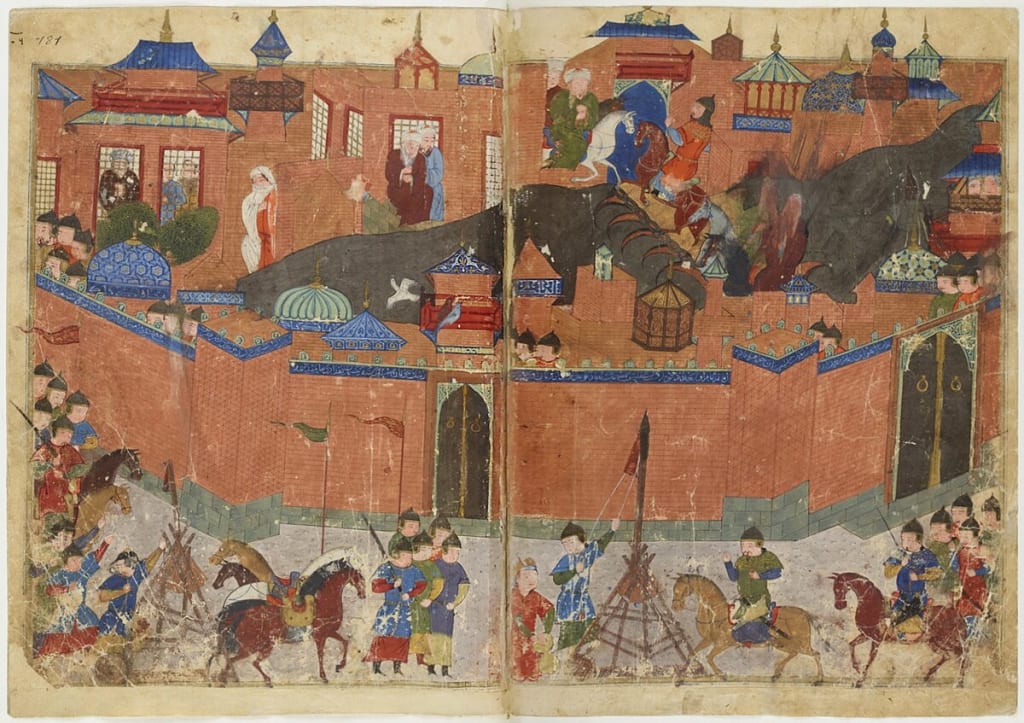The Irreplaceable Loss: The Destruction of Ancient Literature
Shattered Pages, Vanished Wisdom, Lost Legacies. Unraveling the Tragedy of Ancient Literature's Demise

Introduction:
Throughout human history, literature has played a pivotal role in preserving and transmitting knowledge, culture, and ideas across generations. From the ancient epics of Homer to the philosophical treatises of Aristotle, these timeless works have shaped civilizations and provided profound insights into the human experience. However, the world has witnessed numerous instances where invaluable ancient literature has been irretrievably lost due to various forms of destruction. This article delves into the heartbreaking consequences of the destruction of ancient literature and the impact it has on our understanding of the past.
1. The Library of Alexandria:
The destruction of the Library of Alexandria stands as one of the most significant losses in the history of ancient literature. Founded in the third century BCE, the library was a repository of knowledge housing countless scrolls, manuscripts, and texts from across the ancient world. Tragically, the library suffered multiple fires and invasions, leading to its ultimate demise. Scholars estimate that the loss of countless invaluable works has significantly hindered our understanding of various disciplines, including philosophy, mathematics, and astronomy.
2. The Burning of the Maya Codices:
In the 16th century, during the Spanish conquest of the Americas, an immense amount of Mayan literature was destroyed. The Maya codices, containing detailed accounts of their history, culture, and knowledge, were considered pagan and idolatrous by the Spanish colonizers. Consequently, the majority of these sacred texts were burnt, leaving only four surviving codices. This devastating loss limits our understanding of the complex Mayan civilization and its contributions to fields such as astronomy, mathematics, and hieroglyphic writing.
3. The Destruction of the Library of Baghdad:
The House of Wisdom, located in the library of Baghdad, was a center of learning during the Islamic Golden Age. Scholars from diverse backgrounds thrived within its walls, translating and preserving works from various cultures. Tragically, in the 13th century, the Mongol invasion led to the destruction of this magnificent institution. Countless works were lost forever, including the works of ancient Greek philosophers and Persian scholars. The loss of the Library of Baghdad was a profound setback for humanity's intellectual development.
4. Modern Instances of Destruction:
Regrettably, the destruction of ancient literature is not confined to the past. In recent years, conflicts and wars have led to the deliberate targeting and destruction of cultural heritage sites and libraries. The destruction of the National Library of Iraq and the looting of the National Museum of Baghdad during the Iraq War are distressing examples. Similarly, the Syrian Civil War has resulted in the devastation of historical sites, including the Great Mosque of Aleppo and the ancient city of Palmyra, with significant losses of valuable manuscripts and artifacts.
Conclusion:
The destruction of ancient literature is a tragic and irreplaceable loss for humanity. It represents a rupture in our collective memory and a missed opportunity to understand and learn from the wisdom and knowledge of our ancestors. The eradication of priceless manuscripts, scrolls, and texts robs future generations of insights into the diverse cultures, philosophies, and scientific achievements that have shaped our world.
In an era where preservation and digitization efforts are vital, it is crucial to acknowledge the importance of safeguarding our cultural heritage. By supporting initiatives that protect and preserve ancient literature, we can strive to mitigate the loss of invaluable knowledge and ensure that the wisdom of the past continues to illuminate our path forward.
About the Creator
Huzaifa Mehmood
I am not much of a writer just an engineer who is fond of a lot of things and likes to write about them. I love reading and literature. Bit of a romantic and a big history enthusiast. I like cars, F1 and racing as much as i like cooking.
Enjoyed the story? Support the Creator.
Subscribe for free to receive all their stories in your feed. You could also pledge your support or give them a one-off tip, letting them know you appreciate their work.






Comments
There are no comments for this story
Be the first to respond and start the conversation.